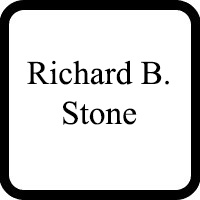Ocean Townshp Criminal Lawyer, New Jersey
Sponsored Law Firm
-
 x
x

Click For More Info:
-
Law Office of Mark S. Guralnick
55 Madison Avenue 4th Floor Morristown, NJ 07960» view mapCriminal Defense Law Dedicated. Fearless. Successful.
Mark S. Guralnick and his legal team have helped clients throughout the USA and across the world by applying unparalleled dedication and hard work to each case.
800-399-8371
Adam Jon Weisberg
✓ VERIFIEDCriminal, Divorce & Family Law, Accident & Injury, Workers' Compensation, Traffic
Our firm is dedicated to protecting your rights and advocating for you. Whether you are facing a criminal charge or suffering from a personal injury, ... (more)
Richard B. Stone
✓ VERIFIEDAccident & Injury, Divorce & Family Law, Real Estate, Criminal, Consumer Rights
Richard B. Stone is a member of the firm of Stone Mandia, LLC with over four decades of litigation experience. Mr. Stone is admitted to the State Cour... (more)
David A. Gardner
Lawsuit & Dispute, Industry Specialties, Employment, Criminal
Status: In Good Standing
FREE CONSULTATION
CONTACTRita M. Gribko
Litigation, Lawsuit & Dispute, Divorce & Family Law, Criminal
Status: In Good Standing Licensed: 30 Years
FREE CONSULTATION
CONTACTVictor M. Covelli
Real Estate, Estate Planning, Criminal, Personal Injury
Status: In Good Standing Licensed: 43 Years
Charles J Uliano
Traffic, White Collar Crime, Criminal, Civil & Human Rights
Status: In Good Standing Licensed: 50 Years
 Mark Guralnick Morristown, NJ
Mark Guralnick Morristown, NJ AboutLaw Office of Mark S. Guralnick
AboutLaw Office of Mark S. Guralnick Practice AreasExpertise
Practice AreasExpertise


